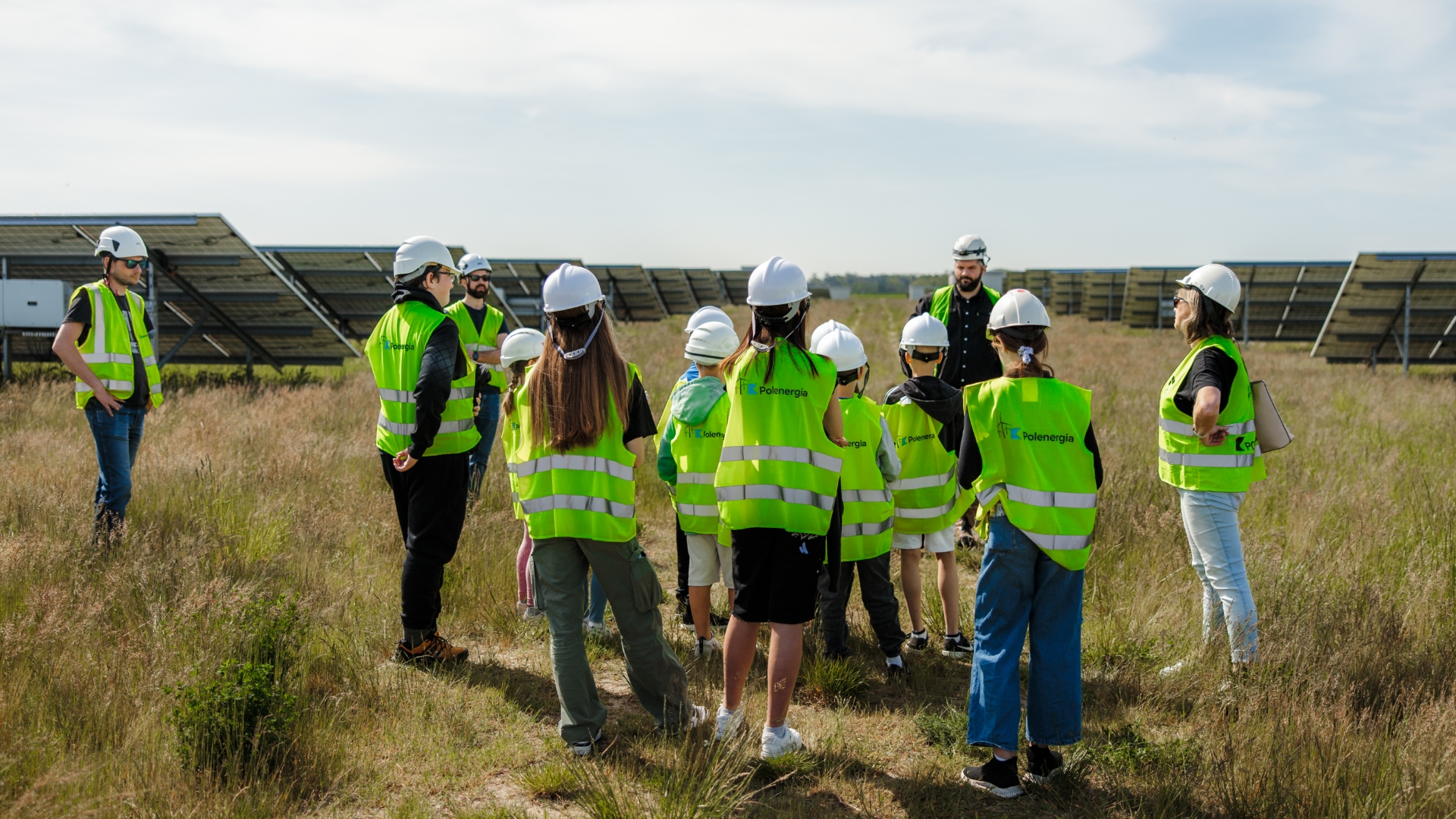- Polenergia Group
- Environment
- Society
- Management
On May 20th, we celebrated World Bee Day. It was an excellent opportunity to talk to children about the importance of bees and other insects for the natural environment and economy, as well as to promote ecological attitudes. Therefore, on the last Monday, May 22nd, we organized educational activities on the premises of the photovoltaic farms in Sulechów, inviting 70 students from 5 primary schools. The participating students were from Primary Schools No. 1, No. 2, and No. 3 in Sulechów, as well as from primary schools in Bukowo and Kalsko.

During the event, children had the opportunity to participate in three sessions:
World Bee Day, established by the United Nations upon Slovenia’s initiative, is celebrated on May 20th. Its goal is to emphasize the importance of bees in food production and draw attention to the threats that these insects face.
According to the United Nations Environment Programme (UNEP), 84% of the 264 plant species cultivated in Europe require pollination by insects. In Poland, there are nearly 470 species of bees, with the honeybee being the most well-known. Approximately one-third of the food we consume is the result of honeybee pollination.
Intensified agriculture, excessive or improper use of pesticides and fertilizers, presence of pathogens, environmental pollution, and climate change pose significant threats to these insects. In recent years, an increasing number of environmental organizations have drawn attention to the hazards leading to the mass decline of pollinating insects. According to them, the main threat to bees is the loss of habitats for foraging and nesting due to changes in land use. The expanding urban areas and cultivated fields, dense urbanization, frequent mowing of lawns and meadows are just some of the factors that are detrimental to these insects.
That is why, on a 50-hectare area of photovoltaic farms in Sulechów, we cultivate diverse meadows of flowering plants and pasture grasses, providing abundant food sources for insects. The areas of our photovoltaic farms are free from pollutants and agricultural chemicals. The increasing surface of meadows translates into greater species diversity of insects, as well as birds and mammals. Thanks to our efforts, the biodiversity in the Sulechów region is noticeably increasing.
Szanowny użytkowniku, w zgodzie z założeniami RODO potrzebujemy Twojej zgody na przetwarzanie danych osobowych w tym zawartych w plikach cookies. Dowiedz się więcej.
The cookie settings on this website are set to "allow cookies" to give you the best browsing experience possible. If you continue to use this website without changing your cookie settings or you click "Accept" below then you are consenting to this.